tl;dr: Artificial Intelligence and automation are revolutionizing numerous industries by enhancing efficiency and growth. From gastronomy and manufacturing to healthcare and education, these technologies are improving customer experiences, optimizing operational processes, and promoting sustainable practices. Despite challenges such as data protection and the need for workforce retraining, AI and automation offer immense opportunities to create new jobs and globally improve quality of life. Regardless of your industry, our Use Case Advisor provides tailored recommendations to explore AI's potential for your needs and revolutionize your work.
At the Pulse of the Future: The Invisible Revolution Through AI and Automation
In a world increasingly permeated by technology, Artificial Intelligence acts as the silent changer in the background, pushing the boundaries of what's possible and opening new horizons. We've long surpassed the point where AI and automation were merely subjects for science fiction. Today, they are ubiquitous, acting as catalysts for efficiency and growth that actively shape the future. In nearly every sector—from manufacturing to medicine to retail—these technologies revolutionize how businesses operate, make decisions, and drive innovation. They enable the analysis of complex data sets to gain profound insights, automate processes that previously required human intervention, and offer personalized experiences on an unprecedented scale. By boosting productivity, improving accuracy, and opening new possibilities for creativity and innovation, AI and automation act as the invisible engine leading us into a future once considered unreachable.
Efficiency and Experience: AI and Automation Transform Industries
Gastronomy 2.0: Automation as a Recipe for Success
In the gastronomy sector, automation revolutionizes customer experience and operational efficiency in remarkable ways. AI-driven ordering systems allow guests to select and customize their meals via digital interfaces, speeding up the ordering process and increasing order accuracy. Smart kitchen management tools analyze real-time data to optimize kitchen flow and minimize preparation times, while also reducing food waste. Robotic chefs and waiters, once futuristic visions, are increasingly found in practice, offering a unique experience for guests. They ensure consistently high quality and efficiency in meal preparation and delivery. These technologies not only transform how restaurants operate but also enhance the overall customer experience by providing entertainment, reducing wait times, and enabling a higher level of personalization and satisfaction. Automation in gastronomy thus exemplifies the use of modern technologies to increase efficiency and customer satisfaction.
AI-driven Consulting: Revolution in Consulting
In the consulting industry, the integration of Artificial Intelligence leads to a paradigm shift. AI-powered tools analyze huge data sets in real time, enable more precise market forecasts, identify trends, and optimize strategies. Consultants use these technologies to offer clients customized solutions based on solid data analyses. Automating routine analysis processes allows consultants to focus on developing innovative strategies and building deeper client relationships. AI advances the personalization of consulting services, improves decision-making, and boosts efficiency. Thus, Artificial Intelligence becomes an indispensable partner in consulting, not only increasing consultants' performance but also providing lasting value to clients.
Innovative Comfort: AI-driven Transformation in Hospitality
The hospitality industry undergoes a fundamental transformation of service and guest experience through the use of AI and automation. Digital assistants and chatbots use advanced algorithms to provide guests with a seamless and personalized booking experience. They respond to inquiries in real-time around the clock, enhancing customer satisfaction and reducing administrative work for staff. Intelligent room control systems adjust the environment to individual preferences—from temperature control to lighting—ensuring an exceptionally comfortable stay. Additionally, the use of AI in room and resource management allows hotels to operate more efficiently. These technologies not only optimize occupancy planning and staffing but also contribute to reducing energy consumption and promoting sustainability. By increasing efficiency while creating an unparalleled guest experience, hotels that leverage AI and automation set new industry standards.
Digital Precision: AI in Legal and Tax Consulting
For lawyers and tax consultants, Artificial Intelligence is becoming an indispensable tool that boosts efficiency and improves accuracy. AI systems sift through vast amounts of legal documents and tax regulations in seconds, identifying relevant precedents, legal changes, and tax optimization opportunities. This technology enables consultants to develop customized solutions based on the latest information, saving time. AI also supports risk analysis by identifying potential issues in contracts and tax returns before they become real challenges. Automating routine tasks allows legal and tax experts to focus more on strategic consulting and personalized service. AI in legal and tax consulting thus signifies a new era of precision that not only enhances the quality of consulting but also provides significant added value to clients.
Tailored Learning: The AI Revolution in Education
The education sector is experiencing a revolution through the use of AI, promoting personalized learning and democratizing access to education. Intelligent tutoring systems use advanced algorithms to adapt to individual learning speeds and styles. These systems provide customized support and feedback, making learning more efficient, engaging, and targeted. AI-based analytics tools give educators deeper insights into students' learning progress, allowing instruction to be precisely tailored to each individual's needs. These technologies help quickly identify and close gaps in understanding, supporting teachers in providing an optimal learning environment for all students. By enabling personalized learning at an unprecedented level, AI systems in education act as a transformative force aimed at meeting learners where they are and accompanying them on their individual educational journeys.
Marketing 4.0: AI Revolutionizes the Art of Communication
In marketing agencies, the use of Artificial Intelligence marks a profound transformation in advertising and communication strategies. AI-powered systems allow for the creation and delivery of audience-specific content with unprecedented precision. They analyze user behavior patterns and preferences in real time to generate personalized marketing messages that significantly increase engagement rates. By automating A/B testing and optimizing campaigns in real time, marketing agencies maximize the ROI of their projects. Moreover, AI-powered tools open new creative horizons by assisting in the creation of innovative designs and content. These developments lead to more effective and efficient customer outreach, strengthen brand identities, and drive growth. AI in marketing represents an era where data intelligence and creativity work hand in hand to redefine the boundaries of customer communication.
Revolutionary Precision: AI in Healthcare
In healthcare, the use of AI algorithms leads to significant improvements in diagnosis and treatment methods. These advanced technologies enable faster and more accurate disease diagnoses by assisting doctors in evaluating complex imaging data, recognizing patterns in extensive patient records, and deriving informed therapy recommendations based on vast data sets. Additionally, AI-powered applications contribute to the personalization of medicine by tailoring treatment plans to individual genetic markers and health conditions. These technological advances not only enhance patient care through more precise diagnostics and more effective treatment approaches but also play a crucial role in saving lives and reducing recovery times. By allowing doctors to focus on the most complex cases and automating routine tasks, AI revolutionizes healthcare and paves the way for a future where personalized medicine and high treatment success rates are the norm.
Revolution in E-Commerce: AI for Personalization and Efficiency
In E-Commerce, the application of AI and automation revolutionizes the customer experience through unparalleled personalization and logistics optimization. Advanced algorithms analyze users' purchasing behaviors and preferences in real-time to offer individually tailored product recommendations, enhancing customer satisfaction and positively influencing purchasing decisions. Simultaneously, AI-powered logistics and inventory management systems ensure efficient supply chain organization. They optimize the flow of goods, forecast demand, and ensure fast and cost-efficient delivery. These technologies enable online retailers to significantly shorten delivery times, reduce inventory costs, and improve the entire shipping process. By personalizing the customer experience and optimizing backend processes, AI sets new standards in efficiency and customer satisfaction in E-Commerce, giving businesses a crucial competitive edge.
Navigating the Age of Artificial Intelligence – Challenges and Boundless Opportunities
Integrating Artificial Intelligence into existing systems and societal structures is a complex endeavor that, alongside impressive progress, brings significant challenges. Data protection and ethical concerns are at the heart of the debate, as the use of AI involves processing large amounts of personal data and raises questions about how to protect individuals' privacy while leveraging the benefits of technology. The need to retrain and adapt the workforce to handle new technologies further underscores the importance of education and lifelong learning in a rapidly changing job market.
Despite these challenges, the opportunities arising from automation and efficiency improvements are enormous and varied. The integration of AI promises not only the creation of new jobs in technologically advanced sectors but also significant enhancements in global quality of life. By optimizing processes in industry, medicine, education, and many other areas, AI can help use resources more efficiently, reduce environmental impact, and improve access to high-quality services for a broader segment of the population. Balancing the ethical, social, and economic aspects of AI integration is crucial to employing this technology for the benefit of all humanity and shaping an inclusive, sustainable future.
Your Springboard into the Future: AI and Automation
Artificial Intelligence and automation are more than just buzzwords—they are your opportunity to enhance efficiency and innovation in your field. Whether your industry was mentioned or not, the possibilities are limitless.
Looking for inspiration or concrete ideas? Use our Use Case Advisor. It offers tailored recommendations to explore the potential of AI specifically for your needs. Discover now how AI can revolutionize your work. Take the first step in a future-oriented direction and harness the power of technology to achieve your goals.
ㅤ






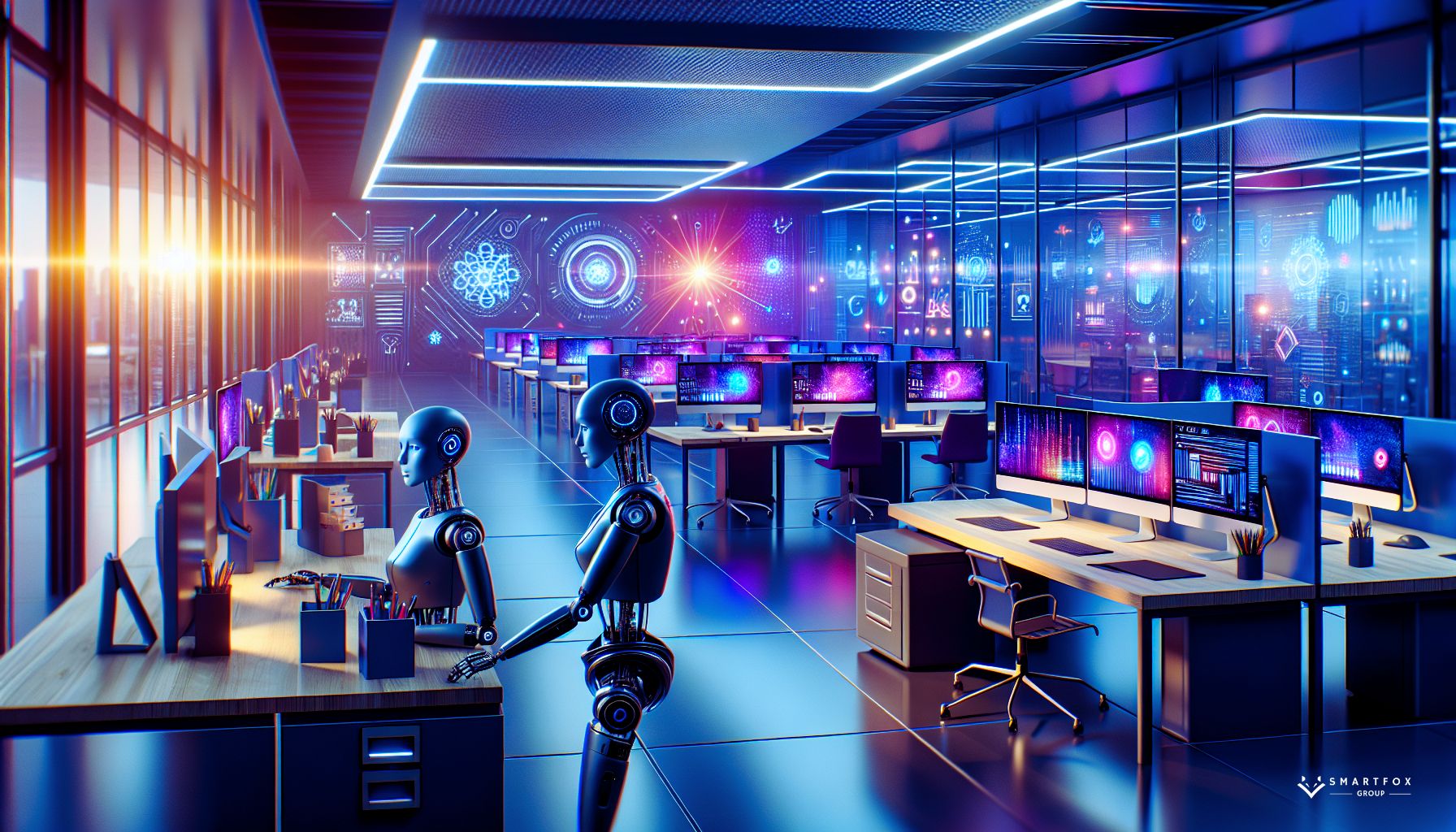
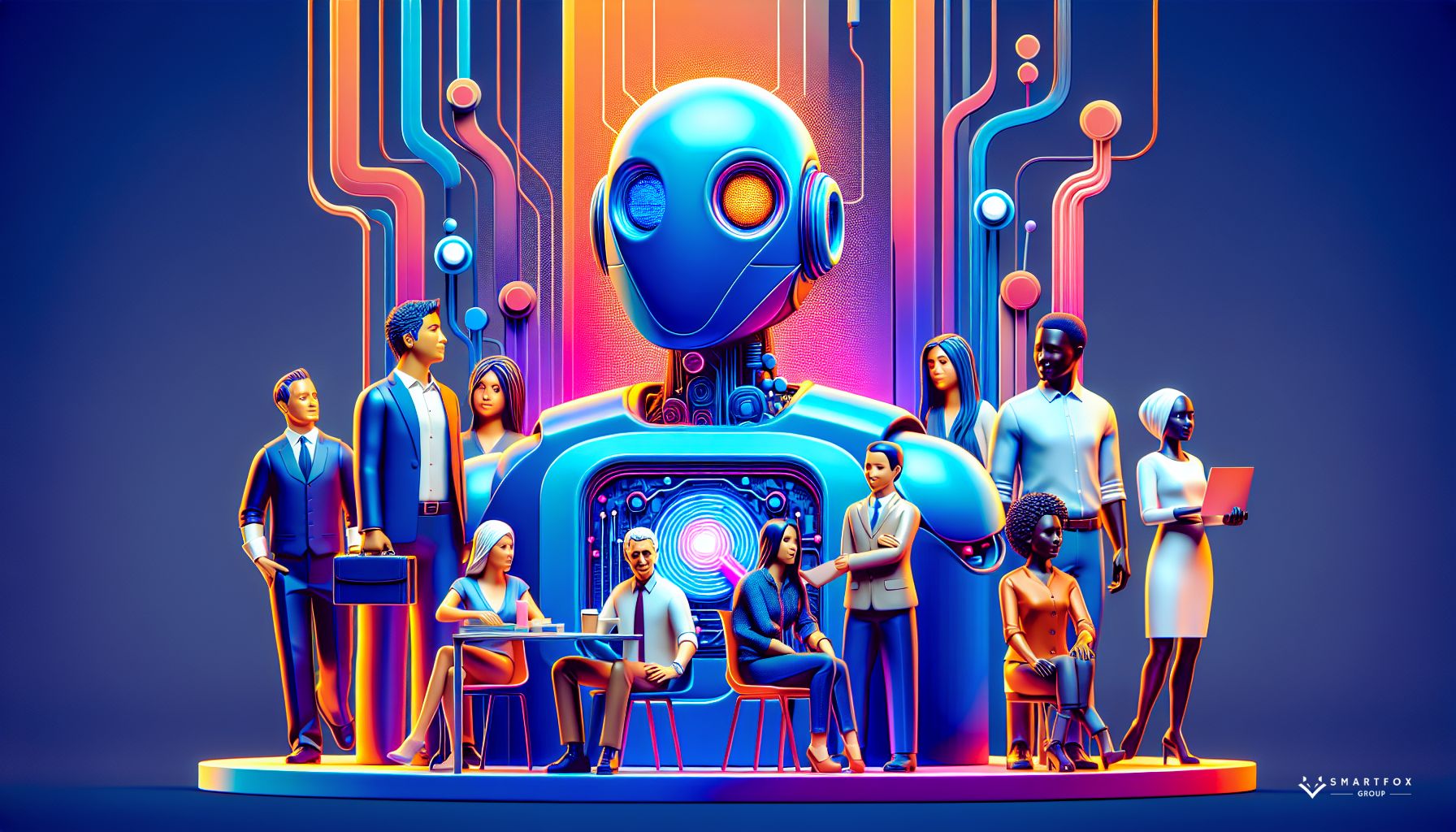

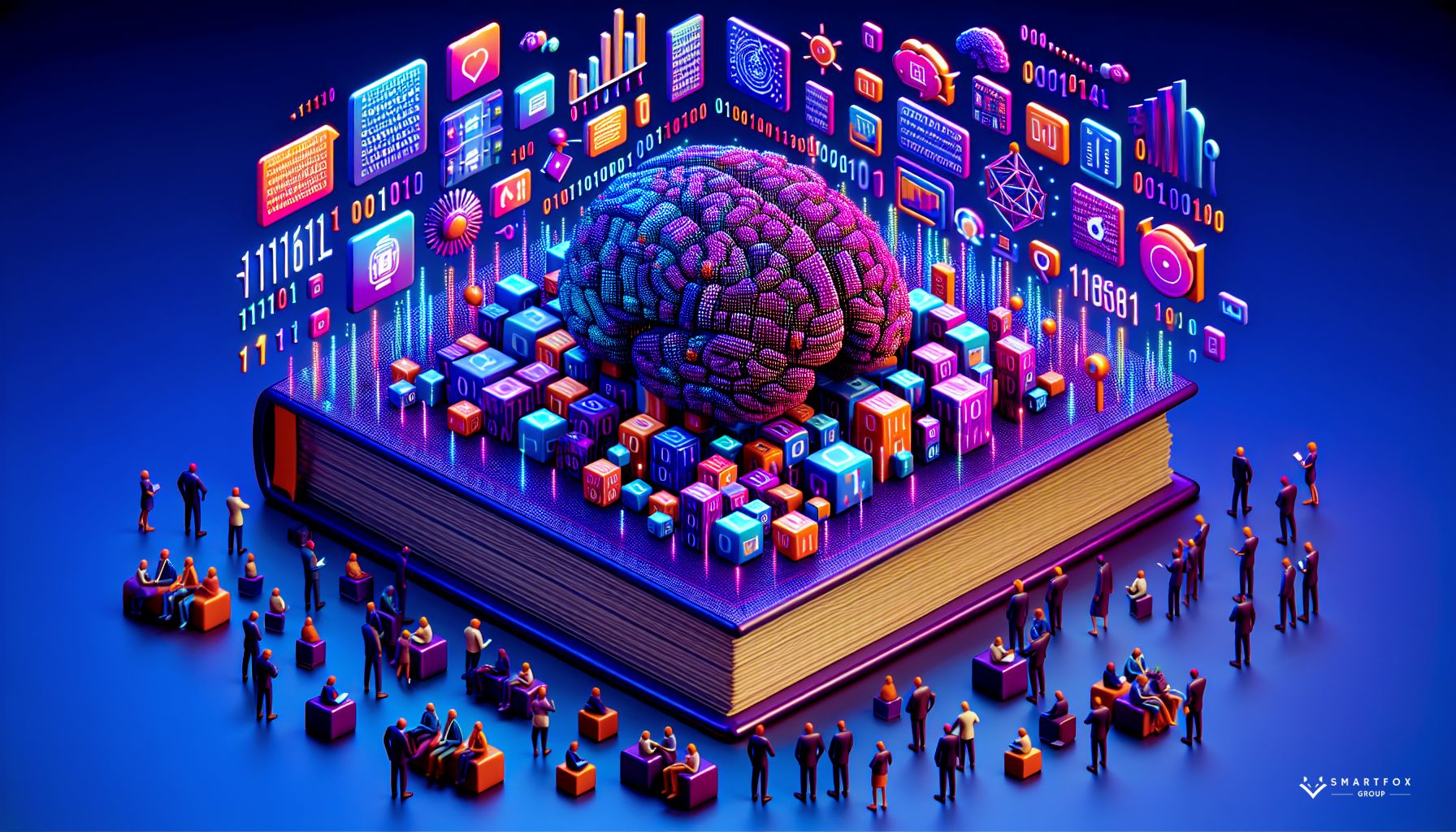
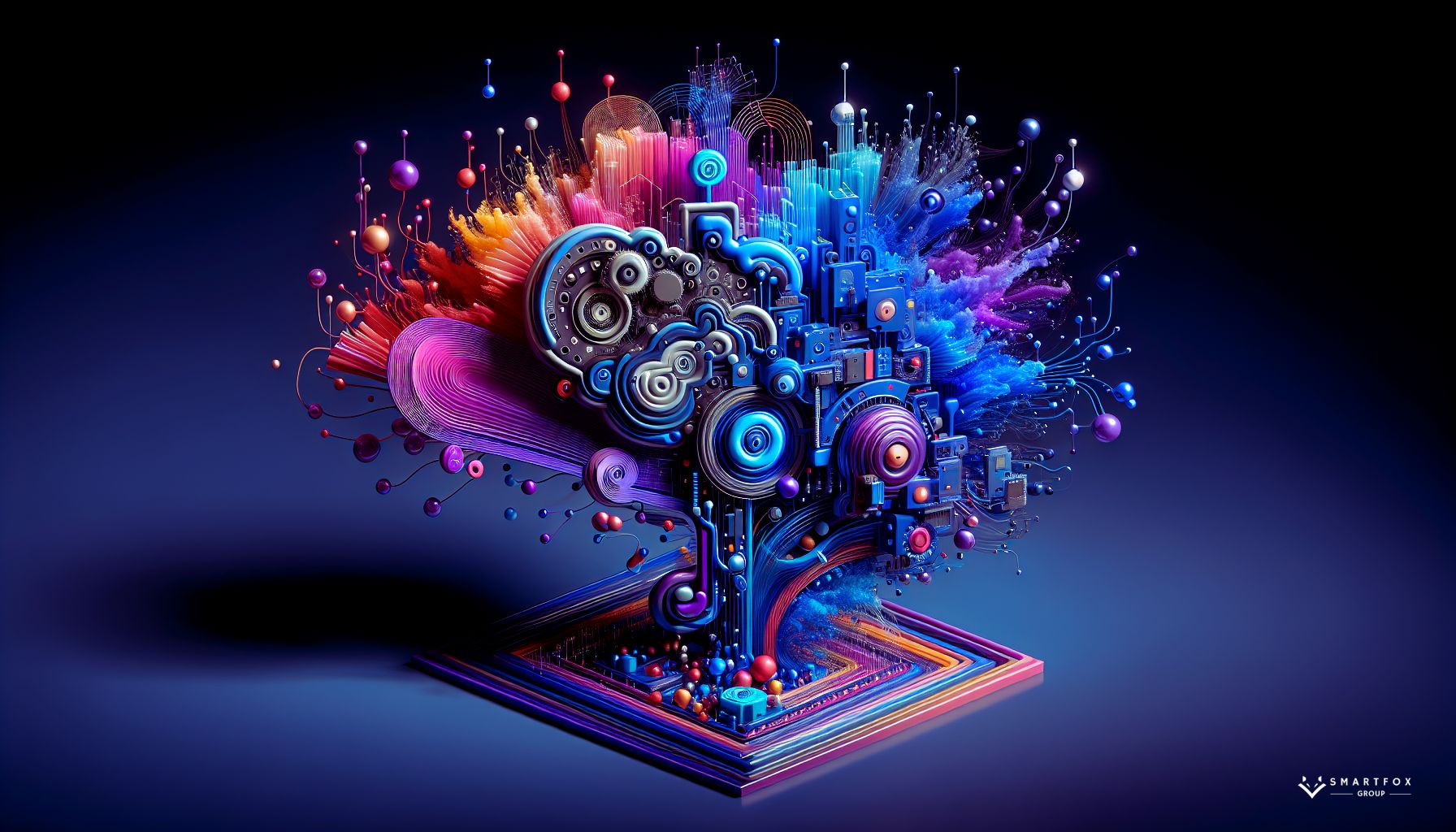
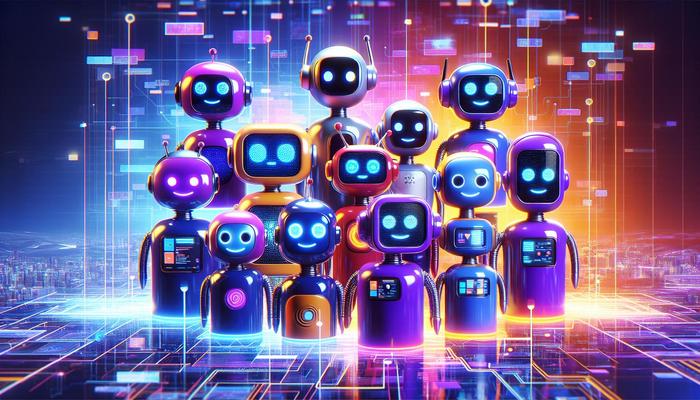
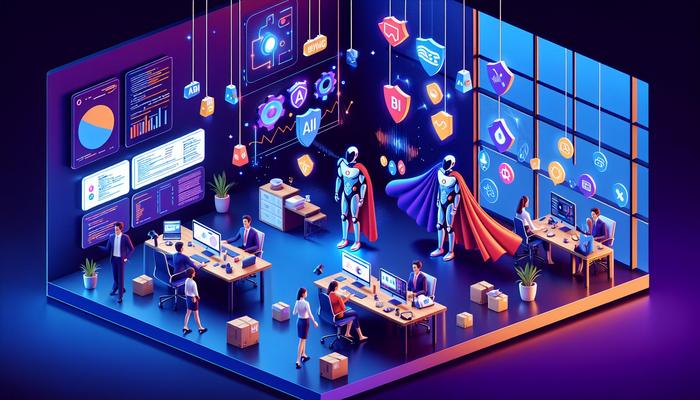
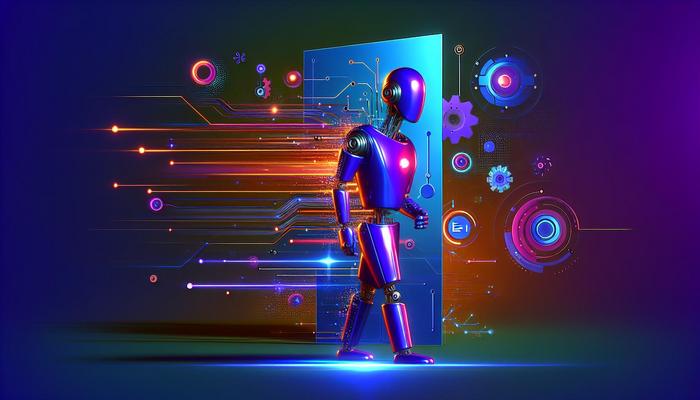
0 Comments